-
Common Questions About Insurance and DUI Convictions
Getting arrested on suspicion of drunk driving is a serious matter. A DUI conviction can lead to many more problems than simply a fine and some time behind bars. If you’re convicted, you could face long-term consequences, including higher insurance rates and problems finding a job due to your criminal record. It’s in your best interests to get in touch with a DUI lawyer in Baltimore as quickly as possible. Remember not to answer any of the police officers’ questions about your alcohol use until you speak with a lawyer.
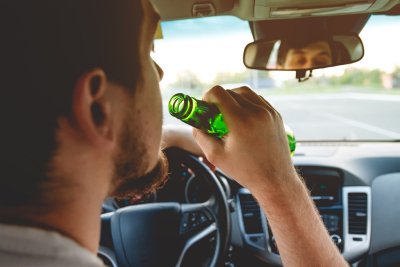
What insurance problems may occur after a DUI conviction?
It’s common sense that your motor vehicle insurance premiums would increase considerably after a DUI conviction. After all, drunk drivers are often repeat offenders, and having this type of criminal history substantially increases the risk of a major car wreck. Some people convicted of DUI find that their current auto insurance carrier refuses to renew the policy, forcing them to look elsewhere for a company that will accept a questionable driving history. But beyond auto insurance, DUI convictions can have an impact on other insurance policies, such as life insurance. After a DUI conviction, you may have a hard time finding a life insurance carrier that will insure you. If you do, you can expect to pay high premiums.
Why do life insurance companies care about my criminal record?
Life insurance companies care about your DUI conviction because it speaks to your overall health and safety. They know that drunk drivers are likely to be repeat offenders, which means there is a possibility that you will die in an alcohol-related crash before a term life policy expires. Drunk drivers are also considered to be risk-takers who may be more likely than the average person to engage in other dangerous behaviors. Furthermore, convicted drunk drivers are more likely than the average person to have existing health problems that may shorten life expectancy, such as cirrhosis or liver cancer.
What about life insurance policies that don’t require a medical exam?
Many convicted drunk drivers assume that life insurance policies that do not require a medical exam will extend coverage at a reasonable premium. However, even if a carrier doesn’t require an exam, it will still check your DMV record.
-
Preventing Back Injuries at Work
One of the most common causes for declining work productivity and missed work days is back pain. Workers’ comp law allows Baltimore employees to receive workers’ compensation benefits for injuries sustained while on the job , but avoiding these injuries is certainly preferable. Watch this featured video to learn how you can protect your back while lifting heavy items.
This video suggests estimating the weight of the item and identifying the best gripping areas before you try to lift it. You should also make sure you have a clear walking path to the item’s destination. If the item is too heavy or bulky, it’s a good idea to ask someone else to help you. Or, use a mechanical lifting aid. Keep the item close to your body as you lift and carry it. And remember to contact a workers’ comp attorney promptly if you do become injured and you have concerns about your rights under workers’ comp law.
““
-
Preventing Noise-Induced Hearing Loss in the Workplace
Occupational hearing loss is a significant risk for employees and a common cause of workers’ comp claims. Fortunately, there are many things you can do to protect your hearing at work. If you do suffer hearing loss, contact a workers’ compensation lawyer in Baltimore to determine what steps you should take next.
Start by recognizing the risks at your job. If you work around heavy machinery, at an airport, in landscaping, or as a first-responder, your hearing could be in danger. Once you understand the risks, determine what kind of device, from earplugs to protective headphones, will provide the best protection for your ears at work. Your employer also has a responsibility to provide training about hearing protection and to set workplace rules that require employees to use protective gear as appropriate for the environment if hearing loss is a risk.
If you have suffered hearing loss on the job, talk to a workers’ compensation attorney. He or she can help you determine what steps you should take to get the compensation to which you are entitled.

-
Hospital Staff: Pathogen-Related Dangers to Know
If you work in an environment in which you could potentially be exposed to blood-borne pathogens, then your employer has the responsibility to take certain precautions for your safety. After you’re exposed to pathogens, consider calling a workers’ compensation attorney in Baltimore to see if you should consider legal action.
To find out about the steps both you and your employer must take to protect yourself from pathogen exposure, watch this video. Your employer must provide adequate training to you so that you reduce your risk of exposure and have a procedure in place to deal with a potential exposure should it occur. If you become ill because of pathogen exposure at work, you may have a workers’ compensation claim. Contact a workers’ comp attorney as soon as possible after the incident to protect your rights.
-
Does Your Car Have an Emergency Kit?
If you experience a car accident near your Baltimore home , an emergency kit could be an essential part of mitigating injuries for yourself and your passengers. The right time to think about an emergency kit is now, before a car accident occurs. Here are some tips for putting together a kit that has the things you need in the event of an accident.
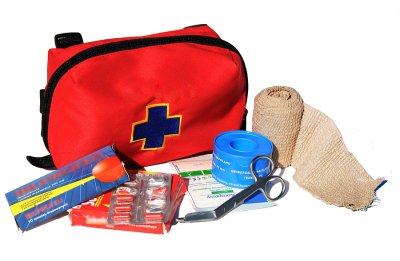
First-Aid Kit
A first-aid kit is the foundation of any good emergency kit. Make sure yours is stocked with Band-Aids, gauze, antiseptic creams and wipes, and aspirin or another pain medication. If your family has special medical needs, these supplies should be in the kit as well. For instance, if someone in your family has diabetes, keep glucose tablets or gel or another non-perishable source of sugar on hand. You will still need to get emergency care after a car accident injury, but having basic first-aid supplies can help you cope with an injury until the first responders arrive.
Basic Repair Tools
Whether after a car accident or during a roadside emergency, having basic repair tools can be handy. Keep things like jumper cables, tire foam, and a multipurpose utility tool in your kit. You should also have things that can assist with repairs and general safety, such as gloves, rags, duct tape, and a flashlight with extra batteries on hand. A tire gauge is also a useful tool.
Charged Cellphone
Having a charged cellphone is essential every time you get behind the wheel. Charge your cellphone every time you get in the car, and keep a spare charger in your emergency kit. Some people find it helpful to have a backup phone with a portable charger in their kit as well. Because you never know what is going to happen on the road, consider programming the number of a car accident attorney into your phone so that you can always reach a lawyer when you have been injured and need to act quickly to preserve your rights.
-
Understanding Shock After a Serious Car Accident
After a car accident, shock is one of the serious conditions that can occur. This life-threatening condition requires immediate treatment, and if you hire an accident attorney in Baltimore to represent you in an injury case, he or she will ask if you were treated for shock as part of preparing for your lawsuit.
Shock occurs when the oxygen that is contained in the blood is not adequate to support the cells. It is associated with low blood pressure and can eventually lead to organ failure if it is not treated quickly. It is possible to have long-term or permanent injuries associated with shock if treatment is delayed. If you experience shock after a car accident, the emergency medical team may use oxygen therapy, IV fluids, blood transfusions, and medications to constrict your blood vessels to attempt to manage the condition.
-
Spotlight on Occupational Diseases
Workers’ compensation cases aren’t always about injuries. Illnesses that occurred in the workplace may also be covered. If you believe you are the victim of an occupational disease, then contact an attorney to see if you should file a workers’ compensation lawsuit in Baltimore .
An occupational disease is a chronic condition that was caused by activities done at work. Some of the diseases that could be occupational in nature include cancer, respiratory issues, hearing loss, and skin diseases. In some instances, depression and anxiety can also fall into this category. If you have such an illness, an attorney can help you determine if your employer could be held responsible and if you should file a workers’ compensation claim. The amount of money to which are entitled depends on a number of different factors, including how your illness impacts your ability to do your job now and in the future and the cost of your medical bills. Your attorney can guide you through the process as well as any necessary workers’ comp appeals that follow your initial claim.
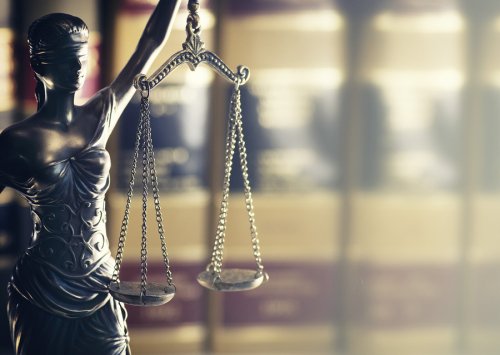
-
Get the Facts About Workers’ Comp Appeals
If you file a workers’ comp claim in Baltimore , and you are notified that it has been denied, you have the option to appeal. Although you are not required by law to have an attorney, hiring an experienced workers’ comp lawyer make it easier to navigate the system and understand your rights, especially during an appeal. If your claim has been denied and you’re considering an appeal, here is what you need to know.

You must request a new hearing.
After a workers’ comp claim is denied by the Maryland Workers’ Compensation Commission, your attorney can determine if an appeal is appropriate. If it is, then your attorney will request a new hearing by submitting an Issues Form, which details all of the parts of your claim you believe were incorrectly decided. Once this form is filed, you will be given a hearing date, and your attorney will argue your appeal in front of a Commissioner. Your employer will also be present with an attorney to make his or her case. After hearing both sides, the Commissioner will issue a new ruling.
You can request a rehearing if the first appeal fails.
If the Commissioner rules against you in the first appeal, your attorney can file a Request for Rehearing in writing within 15 days. Rehearings are often difficult to get and are usually reserved for cases in which there was a legal error or in which new information has surfaced that the Commissioner should consider in regards to your case. Without meeting these conditions, you are not likely to be successful in getting a rehearing.
You can appeal your case to the Circuit Court.
If your rehearing request is denied, your attorney can file for a hearing by the Circuit Court. It is also possible to file a Circuit Court case at the same time as you request a rehearing. If this happens, the Circuit Court decision takes precedence over the rehearing. Circuit Court cases open with the assumption that the initial decision was correct, so your attorney will need to demonstrate the ways in which the Commission made an error. Your employer’s attorney will also present his or her side of the case in Circuit Court.
-
Maryland’s New DUI Law
Maryland lawmakers passed the Drunk Driving Reduction Act of 2016 just a few short months ago. It increases the penalties for individuals convicted of driving under the influence (DUI). This means that if you are pulled over for drunk driving, it’s even more important to contact a DUI attorney in Baltimore. The law, which went into effect last October, mandates that every person convicted of DUI is required to install an ignition interlock device in his or her vehicle. This device prevents the vehicle from starting if it detects alcohol in the individual’s breath. It also periodically requires drivers to retest their breath at random intervals during each trip.
The Drunk Driving Reduction Act of 2016 was nicknamed “Noah’s Law” in memory of Noah Leotta. Noah was a Montgomery County police officer who was killed in December 2015 during a routine traffic stop. It was a repeat DUI offender who struck and killed Noah. Drivers pulled over on suspicion of drunk driving should be aware that Noah’s Law also applies to them if they refuse a chemical test during a traffic stop.
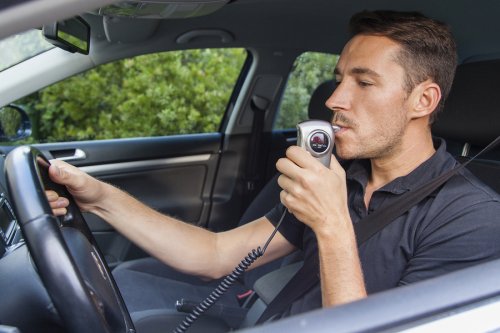
-
Do’s and Don’ts to Know After a Drunk Driving Arrest
Being arrested for a DUI can have serious repercussions, but the steps you take in the immediate aftermath of your arrest can have important implications for your case. The first step is to call an attorney in Baltimore with experience in DUI cases. If you find yourself facing a DUI arrest, these do’s and don’ts will help you protect your rights and mitigate the fallout.
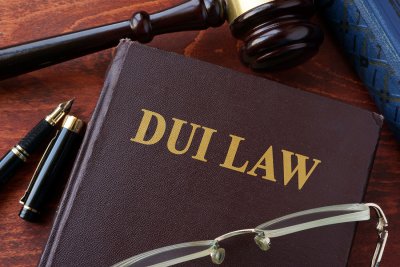
Don’t Discuss Your Case
After an arrest, most people know that they shouldn’t discuss their case with the police without an attorney present. What many people don’t realize is that you shouldn’t discuss your case with anyone except your lawyer until it has been settled. Giving details about the circumstance of your arrest and your actions leading up to it could end up being harmful to your case if you say something incriminating that is repeated to prosecutors or the police. Keep all of the details of your case between you and your attorney until it has concluded.
Do Work Closely with Your Attorney
You and your attorney will need to work hand-in-hand on preparing your defense. In the aftermath of your arrest, it can be helpful to write down everything you can remember about your arrest, including details about your interactions with the arresting officers, what kind of instructions they gave you, and how your sobriety test was conducted. This information will help your attorney determine if your arrest was legal and if your rights were violated in any way. Throughout your case preparation, provide your attorney with any information that is requested as quickly as possible, and attend all meetings and court dates.
Don’t Drive on a Suspended License
If your license is suspended after your DUI, do not drive. If you are caught, the consequences can be severe and may include significant fines, additional license suspension time, and incarceration. Your attorney can help you negotiate with the court to get permission to drive for necessary trips, such as to work or to pick up your children from school.
RECENT POSTS
categories
- Uncategorized
- Worker's Compensation
- Attorney Fees
- Auto Accident Injury Whiplash
- Attorney Review
- Personal Injury
- Social Security Disability
- DUI
- Workplace Injuries
- Auto Accident
- Workers Compensation Claims
- Permanent Disability
- Infographic
- Drunk Driving
- Wrongful Death
- Works in Maryland
- Uninsured Motorists
- Motorcycle Crashes
